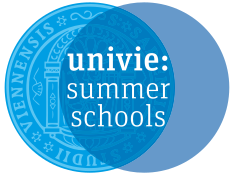
about
The european summer school for scientometrics (esss) offers intensive training covering major aspects of quantitative analysis of science and technology and provides a sound overview of state-of-the-art scientometric indicators and methods.
Annually selected focus topics are addressed combining standard knowledge with current trends.
Scientometric procedures are increasingly used to analyse developments and trends in science and technology also informing decision making at different levels. Decisions to be taken often have severe implications. Consequently data handling, indicator construction and interpretation require competent expert knowledge, which is currently only available to a limited extent for all stakeholders not the least due to lacking training opportunities.
Based on a sound introduction of underlying theoretical concepts attendees can expect to familiarize themselves with the most commonly used data bases, to learn how to retrieve and handle relevant data, how to construct relevant indicators and how to interpret the data adequately.
Imparted theoretical knowledge and knowledge about methods and techniques applied is consolidated in hands-on trainings in order to guarantee a sustainable learning experience.
Participants challenge themselves academically and gain crucial practical experience, by sharing and exchanging ideas with internationally renowned experts.
The european summer school for scientometrics (esss) successfully educated more than 700 international participants since 2010.
It is organized jointly by University of Vienna (Austria), German Centre for Higher Education Research and Science Studies – DZHW (Germany), KU Leuven (Belgium), Berlin University Alliance (Germany), Sapienza University of Rome (Italy) and the University of Granada (Spain).
Main topics
- Definition, history and institutionalization of bibliometrics, scientometrics and informetrics
- Introduction to the most usual data sources
- Overview and use of the most important and relevant scientometric indicators
- Theory, approaches and limitations of subject classifications
- Data handling: data retrieval, data cleaning and processing
- Introduction to journal impact measures
- Subject normalization for citation analysis
- Network analysis: theoretical background and practical examples using different tools
- Best practices of bibliometric applications and services
- Introduction and practical application of alternative metrics
- Scientometric software & tools: critical overview
Audience
esss serves the needs of a broad audience like science policy makers, research quality managers, scientists, information specialists and librarians as well as PhD students.
To enable and ensure close interaction with the lecturers, the number of participants is limited to 50.
Requirements
esss is internationally orientated using English as its language of instruction.
Basic knowledge on bibliometrics and citation analysis is utile but not required.
Venue
esss is held in annual rotation at each of the organizing institutions in Vienna, Berlin, Rome, Leuven and Granada.
ECTS credits
esss is entitled to award 3 ECTS points for participation.
What is included?
Included in the participation fee are:
- all lectures and exercises
- printed and online course materials
- database access during the course
- lunch & coffee breaks
- welcome reception (drinks & snacks)
- social event
- conference dinner (food, drinks)
Participation fee
Regular: 990 Euro
Reduced / Students: 690 Euro
The establishment of esss is very timely. The increasing use of bibliometrics for funding and evaluative purposes, and in international university rankings, makes it essential for more people to develop a detailed understanding of the disciplines strengths and weaknesses. The contributing partners in this new initiative are to be congratulated for putting together an outstanding program.

